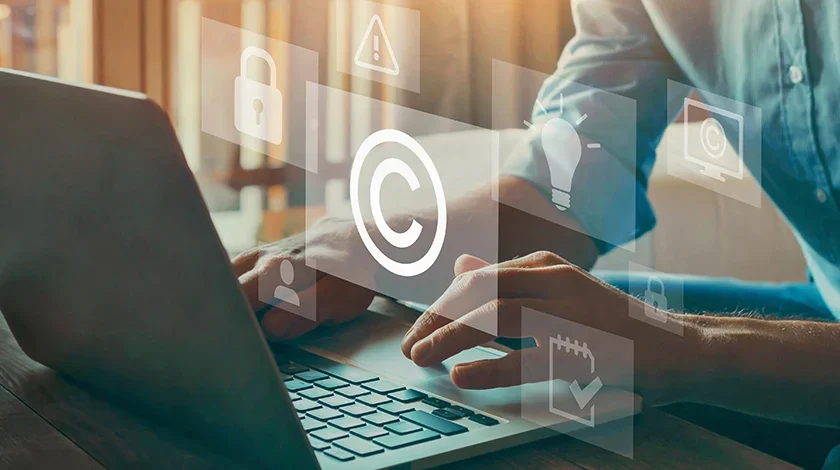Securing intellectual property (IP) is critical in today’s competitive and increasingly digital landscape. From innovative startups to established enterprises, big or small, safeguarding your business’ intellectual assets can help ensure sustained competitiveness, legal protection and set you up to capitalise on your unique creations.
Here, Fiona Smith sits down with Peter English, a Trade Marks Attorney and Coleman Greig’s IP specialist consultant, to explore the complexities and strategies involved in ensuring your business’ IP is secure.
Understanding intellectual property
Intellectual property refers to creations of the mind, such as inventions, literary and artistic works, designs, symbols, names and images used in commerce.
Peter, what are the most common types of intellectual property and what do they protect?
Well, in order of popularity or necessity, the most common forms of IP used by businesses are:
- Patents: Protect inventions or discoveries, granting exclusive rights to produce, use, sell or licence the invention for a limited period.
- Trade marks: Safeguard brand names, logos and slogans that distinguish goods or services from competitors.
- Copyrights: Protect original literary, artistic, or musical works, giving creators exclusive rights to reproduce, distribute, and perform their creations.
- Trade secrets: Guard confidential business information that provides a competitive advantage, such as formulas, processes or customer lists.
Some forms of IP require registration.
Which companies are doing a good job at securing their IP?
There are a number doing it well but consistent leaders are:
Apple’s success is built on a robust IP strategy, including patents and Design registrations, for innovative technologies like touchscreen interfaces and design patents for distinctive product aesthetics. Legal battles with competitors over patent infringement highlight the importance of IP in maintaining market leadership. Apple is also one of the leading owners of Australian Design registrations.
Coca-Cola protects its brand mostly through trade mark registrations worldwide, ensuring exclusive rights to its logo, bottle shape and distinctive red color. This strategy strengthens brand recognition and prevents unauthorised use by competitors.
Pharmaceutical companies invest heavily in patent protections for new drugs, securing exclusive rights to manufacture and sell medications developed through extensive research and development efforts. This enables them to recoup investments, license their patents for continuing development of medicines with third parties and maintain a competitive advantage.
Now we know a little more about what can be protected, what are the current challenges in securing intellectual property?
I’d say it’s a shifting landscape which is constantly changing and needs regular attention from businesses. At present, achieving robust IP security involves navigating interconnected global markets with diverse legal frameworks and potential infringement risks, IP laws across different jurisdictions with varying legal protections, cybersecurity threats of data breaches and unauthorised access to digital IP assets, and internal risks from employees or partners that may unintentionally (or maliciously) compromise IP through negligence, theft or inadequate contractual safeguards.
With that in mind, how can businesses ensure their IP is secure – or at least make steps towards that goal?
There is no magic bullet however, to best mitigate risk and protect intellectual assets, businesses should adopt comprehensive strategies including:
- Legal protections: Register patents, trade marks and designs with relevant authorities to establish legal ownership and enforceable rights. Ensure copyright is controlled by way of assignment from third parties engaged to produce material for the business.
- Confidentiality agreements: Implement non-disclosure agreements (NDAs) with employees, contractors and partners to protect trade secrets and sensitive information. Without such agreements there is no specific property in an idea or information, leaving them exposed.
- Technology solutions: Deploy encryption, access controls and monitoring systems to safeguard digital assets and detect unauthorised access or breaches.
- Employee training: Educate staff on IP policies, best practices and the importance of maintaining confidentiality to foster a culture of security awareness.
- Partnership due diligence: Vet and establish contractual agreements with third parties to ensure they adhere to IP protection standards and obligations.
- IP register: Keep an IP register or spreadsheet which records key details of all your established IP rights, including those that created with third parties via agreement provisions.
- Monitor: Ensure an employee has the IP Portfolio management for your business as part of their job description.
- Regular audits and assessments: Conduct periodic IP audits to evaluate vulnerabilities, update protections and ensure legal compliance.
That makes sense, and I guess it’s about a frequency of regularly attending to these strategies and tasks that ultimately will make a difference in the long run.
Yes, absolutely.
What are the common mistakes businesses make regarding their IP and how can we help our clients to begin protecting their intellectual assets?
Firstly, intangible assets should be viewed in terms of the value they hold for a business, in the same light businesses view their physical assets. To avoid common mistakes, business owners and managers can conduct a simple ‘health check’ on management of their intangible assets:
- Identify: What IP has been created within your business and with third parties (including assignment and any relevant licensing rights) and record it in an IP Register, including key dates of expiry for registered IP rights and third-party contracts.
- Register: To enjoy maximum legal protection provided by IP rights, registration of registerable IP is required. Not doing so may leave businesses vulnerable to problems like IP theft, infringement and lost revenue.
- Protect: Businesses, no matter how big or small, should protect their confidential information securely, only disclosing confidential information on a need-to-know basis. Ensure everyone with access to your business’ confidential information (employees, external contractors, partners, suppliers) are under confidentiality, non-disclosure and the supply of services agreements, to ensure IP rights do not unintentionally transfer to third parties.
- Use: Avoid infringement and/or legal proceedings which may cost your business money and goodwill by only using authorised images and content for digital media channels, such as text or photos on your website or social media, which you have the right to publish, or which don’t infringe the copyright of others. Unauthorised use may cost your business money, time and/or reputational damage. In the age of the internet, it is very easy to find and use images and content online, but certain usage requires authorisation to avoid infringement and/or legal proceedings which may cost your business both money and reputational damage.
- Monitor: Protecting a business’ IP can give the business a competitive advantage, lead to increased revenue and enhance the business’s credibility in the eyes of investors, partners, and customers, demonstrating the company’s commitment to innovation. Monitoring use of a business’ IP allows the opportunity to prevent others from copying or imitating your products or services.
- Be active: Put a strategy in place to regularly monitor for potential infringement, taking legal action when necessary. This is important to protect your company’s IP rights.
Thank you, Peter.
Securing your business’ intellectual property is key to protect your innovations, brands and competitive edge and generate goodwill. By leveraging legal protections, implementing robust cybersecurity measures and fostering a culture of IP awareness, organisations can safeguard valuable assets and capitalise on opportunities for growth and innovation. As technology evolves and global markets interconnect, maintaining vigilance and adapting strategies to emerging challenges are crucial in ensuring sustained IP security and business success.
In conjunction with the preparation and review of your commercial agreements, our experienced intellectual property lawyers can help ensure your IP is secure.
For more information on how we can work protect your business’ intangible assets, please contact:














